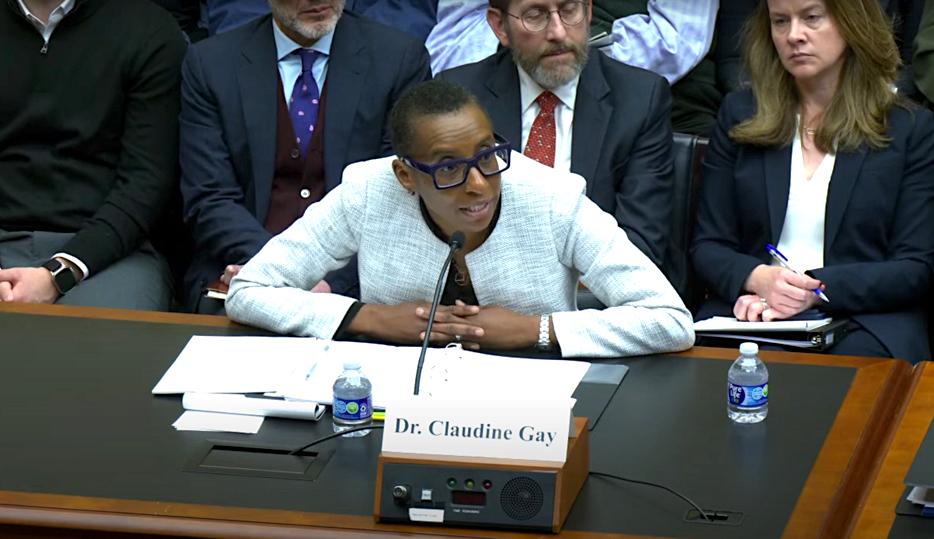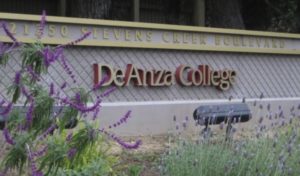Harvard president’s testimony raises the question: Was she qualified to lead in the first place?
Harvard President Claudine Gay’s testimony on antisemitism raises questions about whether she’s fit to lead what some consider to be America’s most prestigious university.
After a charged…

Harvard President Claudine Gay’s testimony on antisemitism raises questions about whether she’s fit to lead what some consider to be America’s most prestigious university.
After a charged Congressional hearing, Gay and several other college presidents are under fire for vague answers about whether calling for the genocide of Jews is acceptable behavior on their campuses.
Gay, in particular, is facing calls from Harvard alumni to resign.
Richard Grenell, a former U.S. Ambassador, even called Gay “morally bankrupt” and said her leadership “cheapens our degrees.”
U.S. Rep. Elise Stefanik, R-New York, who questioned Gay during the hearing, shared similar sentiments.
Even The Harvard Crimson, the university’s student newspaper, acknowledged that Gay’s testimony “only fanned the flames of controversy.”
And members of the Jewish group, Harvard Hillel, questioned Gay’s ability to lead.
“We are appalled by the need to state the obvious: A call for genocide against Jews is always a hateful incitement of violence,” wrote student Jacob Miller and Rabbi Getzel Davis. “President Gay’s failure to properly condemn this speech calls into question her ability to protect Jewish students on Harvard’s campus.”
Some of Gay’s missteps could be attributed to her inexperience, as she just began her tenure as Harvard’s president in July.
But if she didn’t know how to lead a university – let alone one of America’s most prestigious academic institutions – why was she appointed in the first place?
According to Bill Ackman, a billionaire hedge fund manager and Harvard alum, Gay’s appointment may have been influenced by the university’s DEI (diversity, equity, and inclusion) office.
“I learned from someone with first person knowledge of the @Harvard president search that the committee would not consider a candidate who did not meet the DEI office’s criteria,” Ackman tweeted Thursday.
“Shrinking the pool of candidates based on required race, gender, and/or sexual orientation criteria is not the right approach to identifying the best leaders for our most prestigious universities,” he concluded.
DEI initiatives aside, there’s also evidence that Gay isn’t of the same academic or administrative caliber as previous Harvard and Ivy League presidents.
Current and previous Ivy League presidents often spend a decade or more in education administration – serving as deans and directors of departments, provosts and presidents of smaller universities – before receiving the privilege of heading one of America’s top schools.
In comparison, Gay has just eight years of administrative experience and never advanced beyond being the Dean of Arts and Sciences at Harvard before leapfrogging into the president’s office.
Granted, leading a university isn’t solely about administrative skills. So what about other leadership experience and academic credentials?
Other Harvard presidents in recent history have included an award-winning historian and the former U.S. Secretary of Treasury.
Gay’s credentials are comparatively thin.
Minding the Campus, a higher education publication, notes that Gay’s CV in 2022 included just a handful of academic articles and one co-edited book – credentials which may earn promotion to associate professor at some colleges, but hardly more, especially at Harvard.
Although Gay has been praised as a “brilliant scholar of political science,” she’s never written a book and published just 11 articles in 30 years.
Gay’s predecessor, Lawrence Bacow, authored or co-authored 4 books, and Minding the Campus said Larry Summers published as many articles in one (particularly productive) year as Gay has in her entire career.
With limited administrative experience, few academic credentials, and little experience outside of academia, it’s perhaps not surprising Gay has stumbled the way she has.
If Ivy Leagues want to maintain their prestige, according to many of their alumni, they should focus less on DEI and more on the merits of sorts of leaders who made their universities great.



